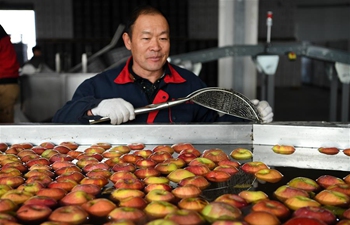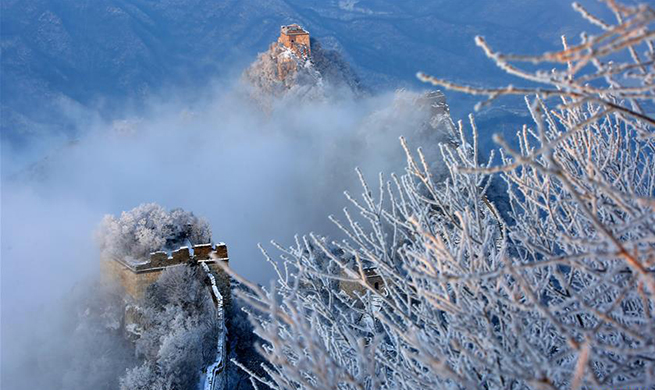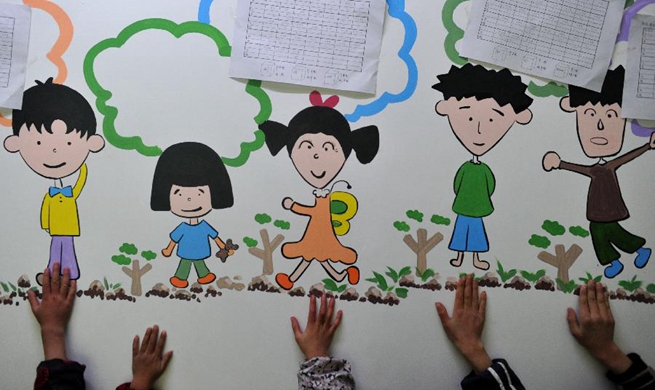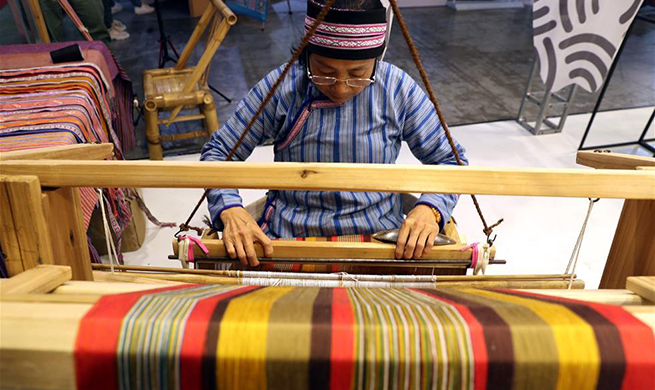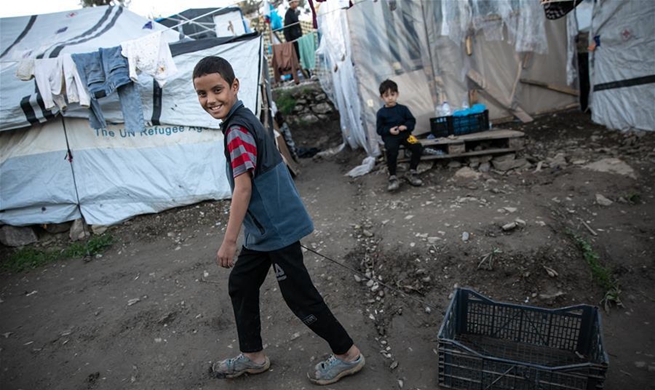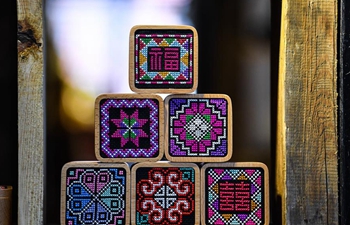by Xinhua writers Mao Pengfei, Nguon Sovan
PHNOM PENH, Dec. 1 (Xinhua) -- International cooperation is crucial to helping safeguard and develop the Historic Site of Angkor, a world heritage site in Cambodia's northwestern Siem Reap Province, a spokesman for Angkor protection authority said on Saturday.
Angkor, the most popular tourist destination in Cambodia, was inscribed on the World Heritage List of the United Nations Educational, Scientific and Cultural Organization (UNESCO) in 1992.
A year later, the International Coordinating Committee for the Safeguarding and Development of the Historic Site of Angkor (ICC-Angkor) was established to coordinate all foreign assistance for preserving and developing the ancient site.
MULTILATERAL COOPERATION
Long Kosal, spokesman for Apsara National Authority, the management authority responsible for protecting and preserving Angkor, said the ICC-Angkor is a multilateral platform, where decisions relating to the safeguarding and development of Angkor are made.
"It has always been in the form of multilateral cooperation in the sense of decision-making process and bilateral at the implementation stage," he told Xinhua.
"This is so because any project or activity to be carried out in Angkor will go through vigorous analysis and debate by all members of the ICC, including the co-chair countries, UNESCO and Apsara National Authority," he added.
Kosal said that through multilateral cooperation under the ICC-Angkor, tremendous achievements have been made in protecting and preserving Angkor over the past years.
"With this international mechanism, Angkor is not only totally safe ... but also becomes a highly attractive destination in the world," he said. "To this end, Angkor contributes greatly to rejuvenating the country's economic and social development."
The spokesman added that the 26th plenary session of the ICC-Angkor to be held on Dec. 10-11 in Siem Reap Province would formulate action plans for the new year following progress already made.
"The experts will be visiting all working sites to check and monitor the previous or on-going implementations," he said. "Also, the meeting will decide certain actions or new projects to be taken in the future."
CHINA'S CRUCIAL ROLE
Kosal said that China has been playing an active role in protecting and preserving Angkor, as it has helped restore ruined temples in the complex of Angkor since the 1990s.
"China has long played an important role in helping Cambodia preserve her cultural heritages," the spokesman noted.
"As for Angkor, we had two important temples restored by the Chinese team, and another new project is fast approaching. Hence, this continued effort amplifies great Chinese commitment toward the preservation and restoration of temples in Angkor," he added.
Chinese cultural relics experts restored the Chau Say Tevoda Temple in 2008, and the Ta Keo Temple in 2018, with the latter starting in late 2010.
"We're very satisfied with the results of restoration work," he said. "Chinese experts' skills and expertise in restoring the two temples are very high, and the results of their work have been highly evaluated by the ICC-Angkor's technical committee."
Kosal added that projects conducted by the Chinese team and other teams such as those from France, India, Japan and Germany, are very important to restoring ruined temples to their original shapes.
"Chinese President Xi Jinping once said that 'a civilization carries on its back the soul of a country or nation. It needs to be passed on from one generation to the next. Yet more importantly, it needs to keep pace with the times and innovate with courage,'" said Kosal.
Cambodia has three world heritage sites, namely Angkor, Temple of Preah Vihear, and Temple Zone of Sambor Prei Kuk, Archaeological Site of Ancient Ishanapura, and China has been involved in the restoration of ruined temples at two sites.
The spokesman added that last year, Cambodia entrusted China to restore the Royal Palace of Angkor Thom in the Angkor complex.
"We entrusted China to restore the former Royal Palace of Angkor Thom because we recognized China's role, effort, commitment and attention to safeguarding and developing Angkor," he said.
Azedine Beschaouch, scientific secretary for the ICC-Angkor, said cultural ties between Cambodia and China are profound, which have lasted for centuries.
"China's contribution to restoring those ruined temples has not only ensured the safeguarding of the Angkor monuments, but also helped attract more and more Chinese tourists to the site," the professor told Xinhua.
Angkor attracted 1.8 million foreign visitors in the first 10 months this year, including some 750,000 Chinese tourists, earning a gross revenue of 80.7 million U.S. dollars from ticket sales, according to a government report.

